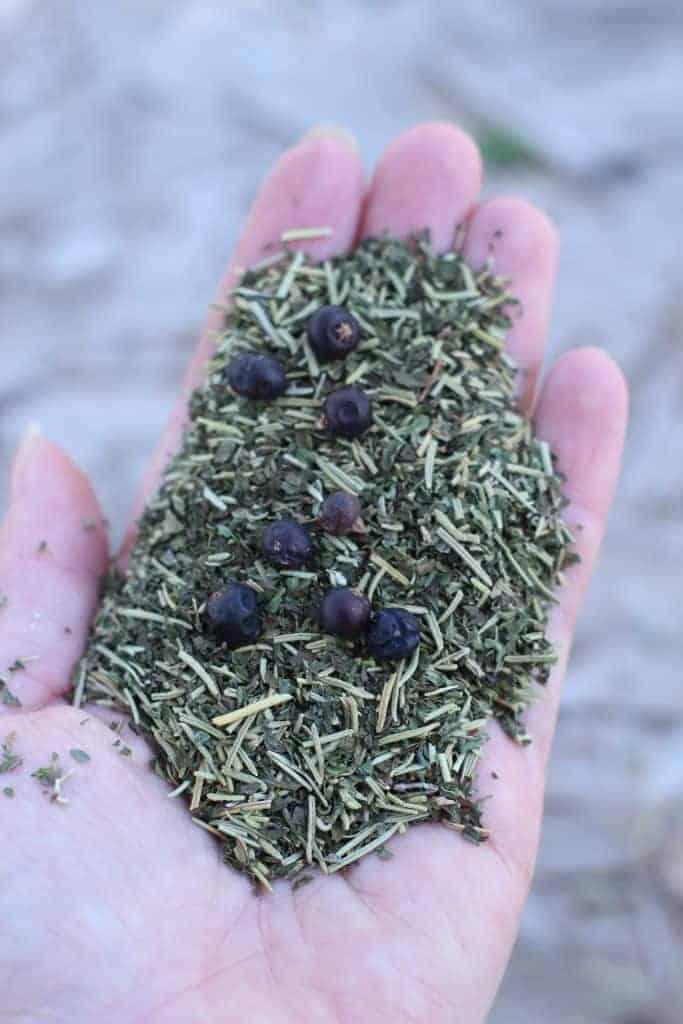Nothing is worse than being bothered by flying pests. It can make life miserable for you….and your chickens! That’s why this article is about my top 6 ways to keep flies, gnats, and mosquitoes off your chickens so you AND they can enjoy time outside!
It’s just starting to be summer on the farm, which means it’s time for the flying insects to make their grand entrance into the world.
I’ve shown you how to keep flies out of your coop, but as your flock plays in their run or tractor, or free ranges, you might notice them shaking their heads quite a bit and looking somewhat miserable, particularly on humid days.
You might even hear some annoyed clucks and squawks.
It’s possible your flock is being annoyed by gnats, flies, mosquitoes, no see ums, and the like - and it can have an impact on their health.
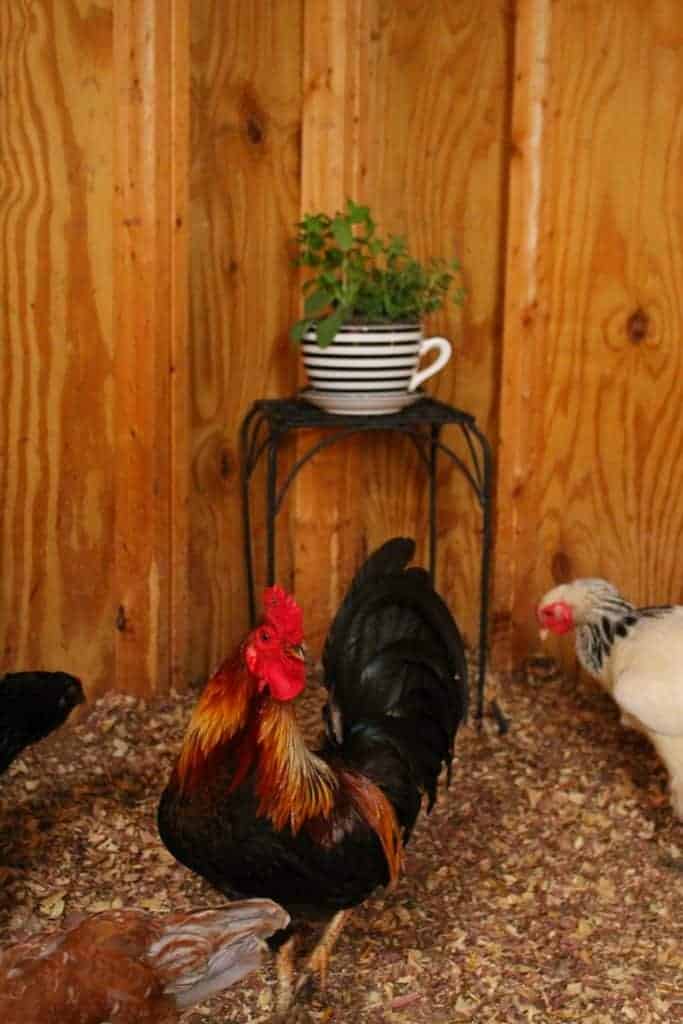
Why flying insects can cause health problems in your backyard chickens
Think about it - if you’re trying to forever keep insects from bugging you, you’re not eating, drinking, and enjoying life.
The extra energy spent constantly moving to keep bugs off also can cause your chickens to lose weight and experience heat stress since they’re physically uncomfortable.
Flies and mosquitoes also harbor diseases and bacteria, which can effect the health of your flock. And yes, they WILL bite your chickens.
So, in this article, I’ll show you 6 different ways you can keep flying insects off your hens!
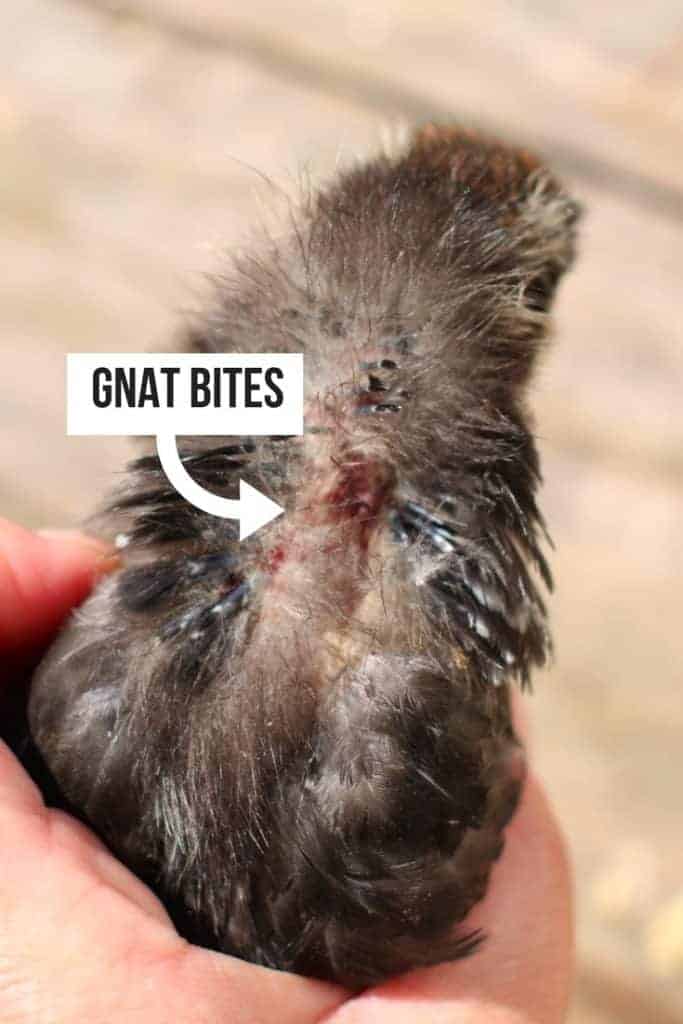
Citronella plants
Citronella is safe for chickens, and I’m sure I don’t have to tell you how great it is at keeping bugs away - particularly mosquitoes.
Each year about this time, I put a few potted citronella plants in the coop. They look great, keep the air smelling fresh, and help keep mosquitoes from bothering the hens.
You can also use fresh citronella in nesting boxes, which might prevent them from getting heat stress and laying abnormal eggs.
Just be sure to clean your nesting boxes 3-4 times a week if you’re using fresh herbs.
Lemongrass in nesting boxes
Lemongrass and citronella are related, and both contain the chemical constituent that does such a great job keeping us bug free during the summer.
I have not found the citronella plant as a dried herb, so I use lemongrass in my flock’s nesting boxes to give them extra protection while they lay eggs.
I’ve noticed that when the hens sit still to lay their eggs, they're way more prone to being irritated by gnats, mosquitoes, and flies - which can make it pretty difficult to get those butt nuggets out easily.
Imagine trying to give birth while having a mosquito buzzing around your head. No fun.
We carry dried lemongrass in the store here and it’s also a main ingredient in PestsBGone, which I developed specifically to keep pests away in coops.
Both of these are the same herbs I use in my own backyard chicken flock’s nesting boxes so they’re happy and lay great eggs.
Worried about pests in your coop??
MitesBGone Nesting Herbs can keep mites, lice & other creepy crawlies away.
YES! I want to keep mites & other parasites out of my nesting boxes!!
Dried Lemon Balm in nesting boxes & feed and fresh potted plants
Lemon balm also contains citronella, and can be mixed in feed and nesting boxes.
We grow it every year in our garden, and for us, it’s a perennial. So, we have a constant supply of fresh lemon balm to hang in the coop or mix into the nesting boxes.
You can also tear fresh lemon balm to release the essential oils and rub them on your flock’s combs, wattles, legs, and other areas that seem bothered by insects.
You can buy started lemon balm at your local big box store and replant into pots. If you want to use dried lemon balm (it smells GREAT and the essential oils are concentrated), you can find it in my store right here.
You can also mix dried lemon balm into your flock's feed - they love the fresh taste and picking at the herbs.
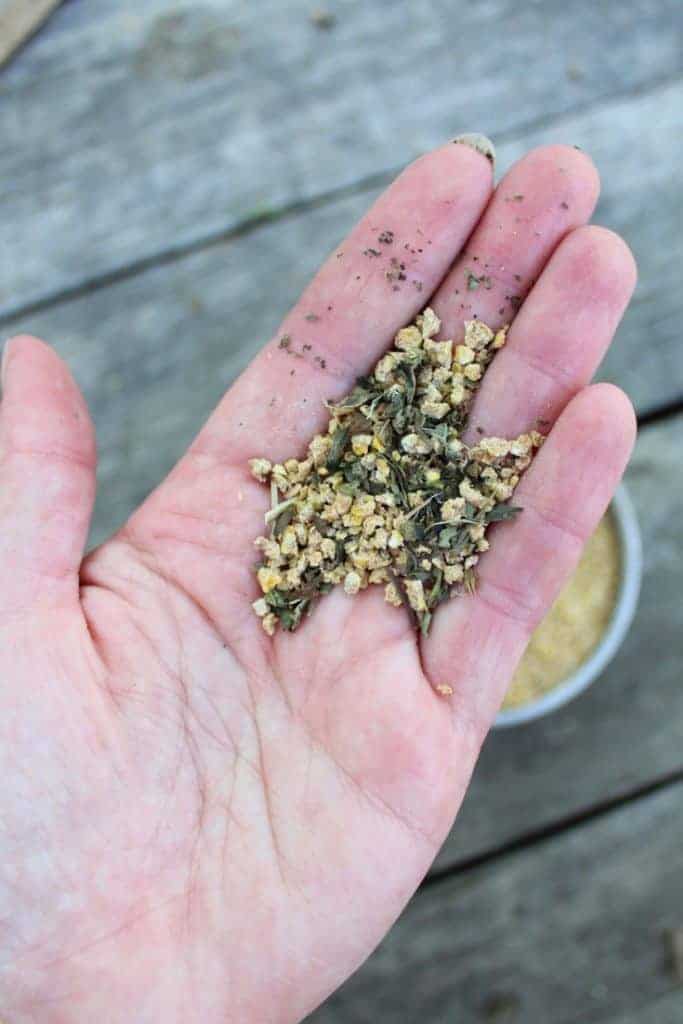
Citronella essential oil mixed with carrier oil
Not everyone wants to use essential oils on their chickens - and that’s fine.
If you DO use oils on your flock, citronella essential oil is GREAT to quickly apply to your flock if they’re REALLY bothered by gnats, flies, mosquitoes, etc and are completely miserable.
This time of year, I usually have a few hens who seem especially bothered, and they seem much relieved after applying citronella oil.
You can mix 1 drop of citronella essential oil with 1 tablespoon of carrier oil such as coconut oil, cocoa butter, mango butter, etc and apply the mixture to combs, wattles, etc to keep the bugs at bay.
If essential oils aren’t your thing, you can combine citronella, dried lemongrass, or dried lemon balm with olive oil, allow to steep for 2-4 weeks so the olive oil absorbs the essential oils from the plants, and then apply as needed.
I avoid essential oils altogether with chicks, and opt for simply keeping fresh or dried herbs around them to prevent pests.
Peppermint coop spray & fly spray for chickens
I cover how to make peppermint coop spray here and natural fly repellent here, and they’re both a great option to keep flies, etc away. Please note that these sprays aren’t meant to be sprayed ON your chickens - just around the coop.
I have a recipe below that you can use ON your chickens.
Flying insects hate peppermint, although I would also add something like citronella or lemon balm to get a double (or triple) punch. I’m not convinced peppermint is as effective as plants containing citronella when it comes to flying insects (for mites, etc, peppermint is GREAT).
If you plan to spray your flock to keep bugs away, consider steeping peppermint with lemongrass in hot water. Allow to cool, then gently mist by spraying the mixture up towards the sky, allowing the mist to fall down.
Don’t drench your chickens - you’re not looking to give them a bath. Just mist them a bit, making sure to avoid eyes, ears, nostrils, etc.
If they’re particularly bothered in those areas, you can squirt your fingers and gently apply by rubbing your fingers AROUND those areas - not in or on them.
With eyes, if I need to apply around the eyes, I only apply UNDER the eyes to avoid any drips that might harm their eyeballs.
I do the same with other species, especially those that physically sweat such as horses - you don’t want anything entering their eyes and potentially causing problems.
This is assuming the day is warm enough for it - if the temperature is cool in your area, try a different way I’ve mentioned in this article to keep flies, gnats, and mosquitoes away.
We’ve found this to work to provide some relief during particularly muggy & buggy days.
As above, I avoid spraying chicks at all and opt to keep fresh or dried herbs around them to keep them bug free.
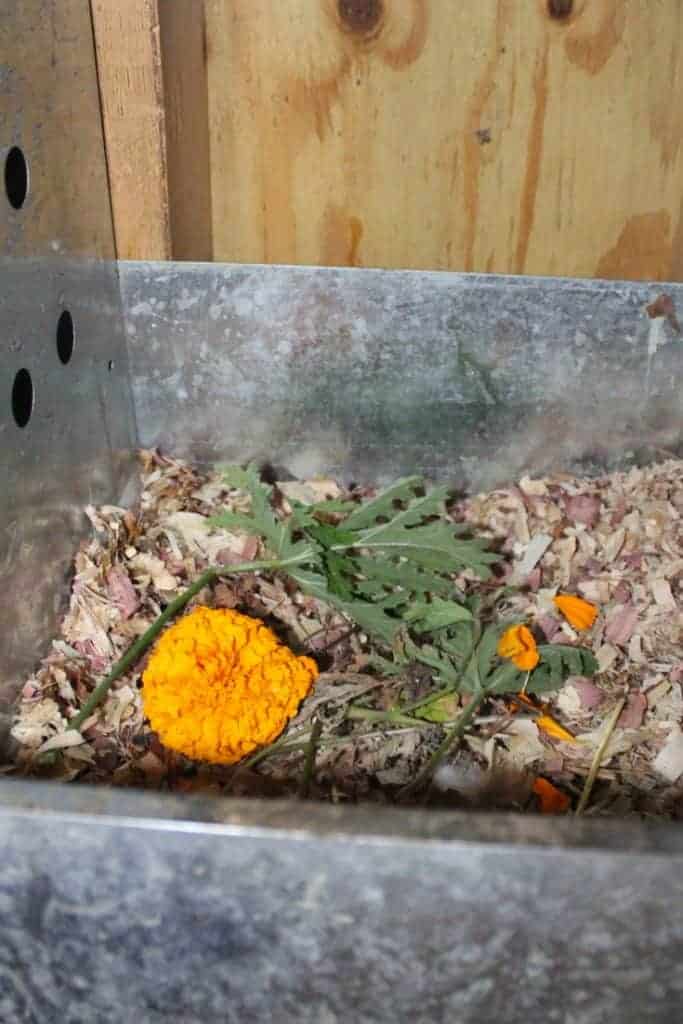
Marigolds
Marigolds (not calendula, which are great flowers to feed your backyard chicken flock for golden yolks, but regular marigolds you find at your local farm store in early spring) are the go-to for gardeners to keep pests out of the garden, and it’ll work for your coop also.
We love putting marigolds in window boxes, hanging them around the coop, placing the petals in nesting boxes, etc to provide relief and help keep our hens comfortable.
They're safe for backyard chickens, and it's best to put any fresh flowers or herbs we discussed in this article at the same level as your flock.
But if you find your hens stripping off the petals, put the marigolds out of reach so they can still do their job or give your flock something tastier to rip apart.
The pretty color of marigolds brightens the interior of the coop and nesting boxes. Just be sure to clean your nesting boxes regularly, and keep watch for any potential external parasites such as chicken mites.
I hope these ideas give you some ways to keep flies, gnats, and mosquitoes off your chickens so they - and you - can enjoy the warm weather!


